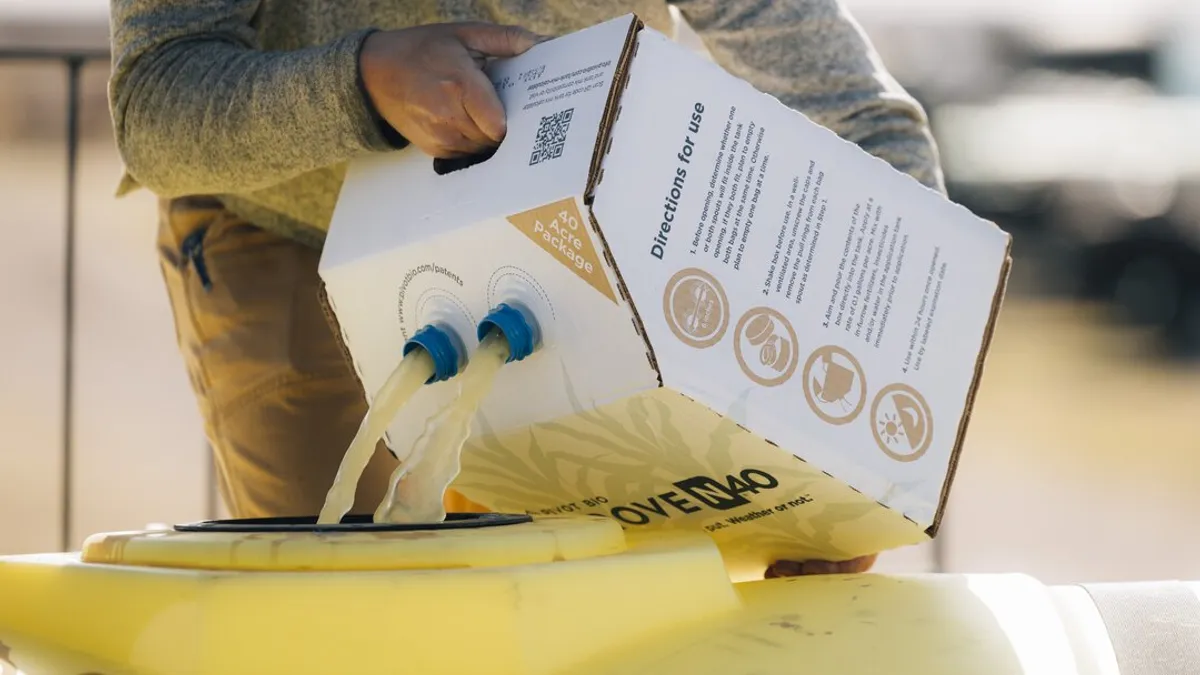Dive Brief:
- Growers using Pivot Bio's fertilizer alternatives have received more than $6 million through the agtech firm's sustainability incentive program, the company said Tuesday.
- Started in 2022, Pivot Bio's N-OVATOR program rewards growers who shift from conventional fertilizers to the biotech firm's products, which are considered a more sustainable alternative to nitrogen.
- Funding for the payments comes from major food and beverage companies looking to reduce supply chain emissions, according to a release. Participants include consumer packaged goods companies, ingredient suppliers, spirits producers and grain buyers.
Dive Insight:
Pivot Bio's sustainability program is meant to offer farmers a reliable, annual stream of income while giving food companies a way to improve their environmental footprint through verifiable nitrogen credits.
"By providing growers with a tool to measure the impact of their nitrogen management practices and serving as a bridge to companies that want to partner with them directly, we're creating a new, low-risk revenue stream for our customers, while delivering a scalable solution to companies with ambitious climate objectives," Karsten Temme, chief innovation officer of Pivot Bio, said in a statement.
In 2022, the N-OVATOR program avoided more than 80,000 metric tons of carbon dioxide equivalent on more than 725,000 acres. Farmers in the program agree to replace synthetic nitrogen fertilizer with Pivot Bio's Proven 40, a microbe-based fertilizer that converts atmospheric nitrogen into plant nutrients.
Pivot Bio said its largest transaction to date has been the sale of 100,000 nitrogen credits to an unnamed global food and beverage company. The transaction replaces over 10 million pounds of synthetic fertilizer and prevents 100,000 metric tons of carbon dioxide equivalent from entering the atmosphere.
The company is looking to enroll more growers and corporate partners for its 2024 program this spring.
"The size and scope of N-OVATOR's partnerships represent a major shift in how companies are investing in sustainable agriculture," Temme said. "By partnering directly with growers in their supply sheds, companies are taking impactful steps to improve their environmental footprint while reducing their Scope 3 emissions.”











